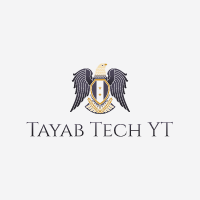Artificial Intelligence
Introduction:
Artificial Intelligence (AI) has been one of the fastest-growing technologies in the world for the last few decades. It is a field of computer science that aims to create machines that can perform tasks that typically require human intelligence. AI has been applied in a wide range of industries, from healthcare to transportation to finance. In this article, we will explore what AI is, its definition, examples of AI in daily life, the types of AI, AI software, and the state of AI in Pakistan.
What is Artificial Intelligence (AI)?
Artificial Intelligence (AI) is a branch of computer science that focuses on the development of intelligent machines that can perform tasks that typically require human intelligence. AI systems are designed to learn and improve from experience, allowing them to adapt to new situations and make decisions based on data analysis.
AI can be divided into two categories: narrow or weak AI and general or strong AI. Narrow AI refers to systems that are designed to perform specific tasks, such as speech recognition or facial recognition. General AI, on the other hand, refers to systems that can perform any intellectual task that a human can.
Artificial Intelligence Examples in Daily Life:
AI has become an integral part of our daily lives, even if we don't always realize it. Here are some examples of AI in daily life:
- Virtual Personal Assistants: Siri, Google Assistant, and Amazon's Alexa are examples of virtual personal assistants that use AI to understand natural language and perform tasks.
- Recommendation Systems: Websites like Amazon, Netflix, and YouTube use AI to recommend products, movies, and videos based on the user's browsing history and preferences.
- Fraud Detection: Financial institutions use AI to detect fraud by analyzing customer data for unusual behavior and flagging suspicious transactions.
- Navigation Apps: Apps like Google Maps and Waze use AI to optimize routes and provide real-time traffic information.
- Social Media: Social media platforms use AI to identify and remove harmful content, as well as to personalize the user's feed based on their interests and behavior.
Artificial Intelligence Definition:
Artificial Intelligence (AI) refers to the development of machines that can perform tasks that typically require human intelligence, such as perception, reasoning, learning, and problem-solving. AI systems are designed to learn and improve from experience, allowing them to adapt to new situations and make decisions based on data analysis.
AI can be divided into two categories: narrow or weak AI and general or strong AI. Narrow AI refers to systems that are designed to perform specific tasks, such as speech recognition or facial recognition. General AI, on the other hand, refers to systems that can perform any intellectual task that a human can.
Artificial Intelligence Software:
AI software is designed to perform tasks that require human intelligence. Here are some examples of AI software:
- Machine Learning: Machine learning is a type of AI that allows machines to learn and improve from experience. It involves the use of algorithms to analyze data and identify patterns, which can then be used to make predictions or decisions.
- Natural Language Processing (NLP): NLP is a type of AI that enables machines to understand and interpret human language. It is used in virtual personal assistants, chatbots, and other applications that require natural language interaction.
- Computer Vision: Computer vision is a type of AI that enables machines to interpret visual information. It is used in applications like facial recognition, object recognition, and self-driving cars.
- Robotics: Robotics is a type of AI that involves the development of machines that can perform physical tasks. It is used in manufacturing, healthcare, and other industries.
Artificial Intelligence in Pakistan:
Pakistan has made significant strides in the field of AI in recent years. Here are some examples of AI initiatives in Pakistan:
- National Center for Artificial Intelligence: The National Center for Artificial Intelligence (NCAI) was established in Pakistan in 2018. It is a joint venture between the Ministry of Information Technology and Telecommunication and the Pakistan Institute of Engineering and Applied Sciences. The center aims to promote research, development, and adoption of AI technologies in Pakistan. It also aims to provide training and education in AI to students, researchers, and professionals. The NCAI has initiated various projects, including the development of an AI-based system for monitoring crop diseases, an AI-powered health monitoring system, and an AI-based speech recognition system for the Urdu language.
AI has the potential to transform various sectors of the Pakistani economy, including agriculture, healthcare, and finance. The government of Pakistan has recognized the importance of AI and has taken various initiatives to promote its development and adoption in the country. In addition to the NCAI, several universities in Pakistan are offering courses and programs in AI, and private companies are investing in AI research and development. The future of AI in Pakistan looks promising, and it is expected to contribute significantly to the country's economic growth and development.




0 Comments